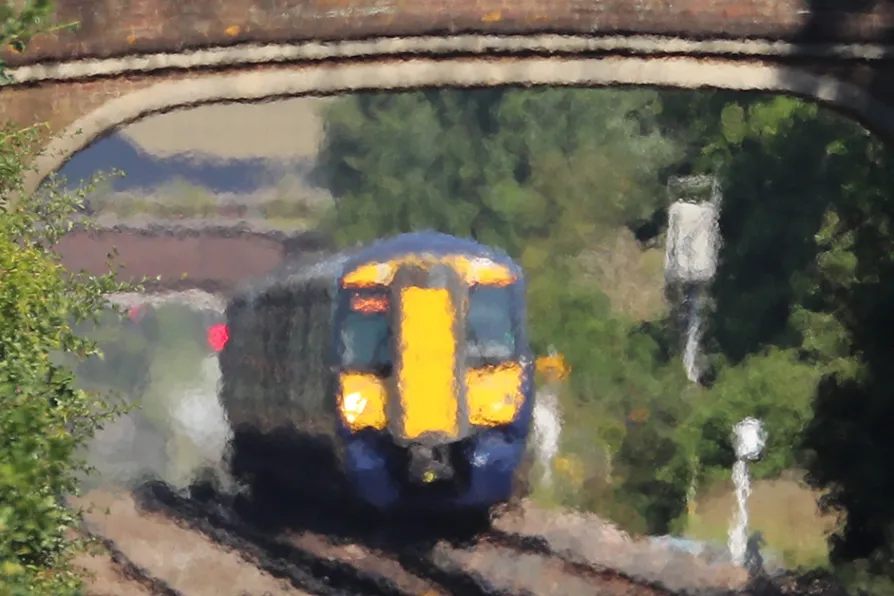
 A train passes through the shimmering heat from railway lines in Ashford, Kent
A train passes through the shimmering heat from railway lines in Ashford, Kent
TRANSPORT unions urged the government today to end the “grotesque” privatisation of rail, as ministers pondered transferring privateers’ debts to the public balance sheet.
Emergency measures agreements (EMAs) between the Department for Transport (DfT) and rail franchises have shifted all running costs onto the DfT, with revenue also going to the department.
EMAs were introduced in March as passenger numbers and revenues plummeted due to the coronavirus pandemic, giving franchises a management fee of up to 2 per cent.
The agreements, which transfer liability onto the taxpayer, will stay in place until at least September 20.
The Office for National Statistics (ONS) is now assessing whether the train-operating companies’ debts should be deemed public.
Responding to the decision, rail union RMT called for an “end to the charade of privatisation” and the “grotesque waste of franchising.”
The move comes days after FirstGroup, which runs South Western Railway and Transpennine Express, warned that there was “material uncertainty” over its ability to continue operating services over the next year.
RMT accused First Group of having “threatened to throw back the keys despite soaking up tens of millions in corporate welfare payments from the UK taxpayer and creating uncertainty on four crucial rail routes.”
Assistant general secretary Mick Lynch said: “Rather than risking the chaos of further franchise collapses, and with the taxpayer already paying for services, underwriting debt and wasting cash underpinning private operators’ profits, there has never been a better opportunity to ditch the fragmentation and waste of franchising and bring the railway officially into full public ownership.”
TSSA general secretary Manuel Cortes called on the government to “tell the truth” and make it clear that Britain’s railways “are now in public ownership.”
“The government must end the charade of trying to say this is not happening. Instead, ministers should tell the truth and act forcefully to defend the interests of our taxpayers by running these services directly through a wholly owned subsidiary.
“There is no room amid the Covid chaos to continue with any pretence that lining the pockets of private operators is acceptable. The era of privatisation is well and truly over.”


















